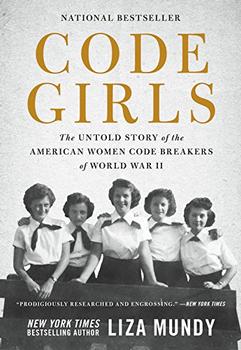Summary | Excerpt | Reviews | Beyond the book | Read-Alikes | Genres & Themes | Author Bio

The Quest to Crack an Ancient Code
by Margalit FoxThe Riddle of the Labyrinth: The Quest to Crack an Ancient Code tells one of the most intriguing stories in the history of language, masterfully blending history, linguistics, and cryptology with an elegantly wrought narrative.
In the tradition of Simon Winchester and Dava Sobel, The Riddle of the Labyrinth: The Quest to Crack an Ancient Code tells one of the most intriguing stories in the history of language, masterfully blending history, linguistics, and cryptology with an elegantly wrought narrative.
When famed archaeologist Arthur Evans unearthed the ruins of a sophisticated Bronze Age civilization that flowered on Crete 1,000 years before Greece's Classical Age, he discovered a cache of ancient tablets, Europe's earliest written records. For half a century, the meaning of the inscriptions, and even the language in which they were written, would remain a mystery.
Award-winning New York Times journalist Margalit Fox's riveting real-life intellectual detective story travels from the Bronze Age Aegean - the era of Odysseus, Agamemnon, and Helen - to the turn of the 20th century and the work of charismatic English archeologist Arthur Evans, to the colorful personal stories of the decipherers. These include Michael Ventris, the brilliant amateur who deciphered the script but met with a sudden, mysterious death that may have been a direct consequence of the deipherment; and Alice Kober, the unsung heroine of the story whose painstaking work allowed Ventris to crack the code.
Digging into archaeology, linguistics, history and cryptography, Margalit Fox’s The Riddle of the Labyrinth solves this jigsaw puzzle for us in an exciting and easily understandable way...One can’t help but remember President Kennedy’s immortal words: “We do these things not because they’re easy, but because they’re hard.” In that sense Fox’s book is not just an ode to Alice Kober and the men behind Linear B but to all humanity - to the many who have looked at a challenge and soldiered on because they recognized that the way through would satiate our infinite thirst for knowledge...continued
Full Review
 (831 words)
(831 words)
(Reviewed by Poornima Apte).
In The Riddle of the Labyrinth, Margalit Fox describes the challenge of decoding Linear B: "An unknown script used to write an unknown language is a locked-room mystery: Somehow, the decipherer must finesse his way into a tightly closed system that offers few external clues. If he is very lucky, he will have the help of a bilingual inscription like the Rosetta Stone, which furnished the key to deciphering the hieroglyphs of ancient Egypt. Without such an inscription, his task is all but impossible."
 In 1799, in the small village of el-Rashid in the Egyptian delta, soldiers from Napoleon's army discovered the tablet. Because the French troops referred to el-Rashid as Rosetta, the stone came to be known as the Rosetta Stone. After Napoleon...
In 1799, in the small village of el-Rashid in the Egyptian delta, soldiers from Napoleon's army discovered the tablet. Because the French troops referred to el-Rashid as Rosetta, the stone came to be known as the Rosetta Stone. After Napoleon...

If you liked The Riddle of the Labyrinth, try these:

by Daisy Dunn
Published 2024
A dazzlingly ambitious history of the ancient world that places women at the center—from Cleopatra to Boudica, Sappho to Fulvia, and countless other artists, writers, leaders, and creators of history

by Liza Mundy
Published 2018
"Code Girls reveals a hidden army of female cryptographers, whose work played a crucial role in ending World War II.... Mundy has rescued a piece of forgotten history, and given these American heroes the recognition they deserve." - Nathalia Holt, bestselling author of Rise of the Rocket Girls